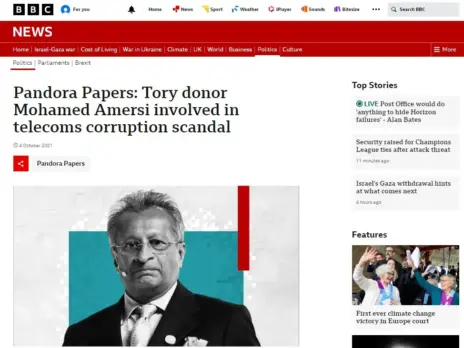Punishing a newspaper for having printed “value judgments” which it could not prove were true was a breach of the publication’s right to freedom of expression, the European Court of Human Rights has declared.
The court was upholding a complaint under Article 10 of the European Convention on Human Rights brought by the Moldovan newspaper Flux and Mrs Aurelia Samson, who had featured in a story it published.
The newspaper ran a story in December 2001 detailing allegations made by Mrs Z Samson about the problems her daughter Aurelia was encountering with property developments by GC, a former Construction Minister in the Moldovan government.
The ex-minister sued for defamation, although he did not specify which parts of the article were defamatory. A district court found in his favour, fining the newspaper and ordering it to pay costs.
The newspaper was involved in two appeals, both of which were rejected.
Upholding the application by the newspaper and Mrs Samson, the European Court of Human Rights noted that the newspaper was fined for being unable to prove the truth of several statements it had made.
“The applicant newspaper argued before the domestic courts that most of the statements represented value-judgments which could in principle not be proved. On appeal, it referred to several additional facts supporting, in its view, the value judgments made,” it said.
“The Court notes that none of the domestic courts responded to these arguments by verifying whether any of the statements could be considered value judgments or by verifying the truth of the additional facts referred to by the applicant newspaper.
“The Court reiterates that the existence of facts can be demonstrated, whereas the truth of value judgments is not susceptible of proof. The requirement to prove the truth of a value judgment is impossible to fulfil and infringes freedom of opinion itself, which is a fundamental part of the right secured by Article 10, although opinions insufficiently based on facts can also be excessive.”
A number of the published statements were value judgments – they expressed the newspaper’s opinion about GC’s building activities and their effects on his neighbours.
“These opinions were, moreover, based on facts which have not been shown to be untrue, some mentioned in the article itself and some referred to during the proceedings. In such circumstances, the Court considers that the newspaper could not be expected to prove the truth of its value judgments and that, moreover, its opinions were not without a factual foundation.”
In addition, the Moldovan courts had not reacted to the confirmation by Mrs Samson’s mother of her own statements to the newspaper.
“The Court considers that, in requiring the applicant newspaper to prove the truth of its statements, while at the same ignoring the evidence adduced to support its statements and thereby show their truthfulness, the finding of the Moldovan courts that the statement was defamatory could not be justified as necessary in a democratic society.”
The European Court said it also took into account “the balanced tone of the article” – and that it was “satisfied of the newspaper’s good faith and that it had acted in consonance with principles of responsible journalism”, even if “resorting to ‘a degree of exaggeration or even provocation’, which had to be protected”.
The article also raised issues of genuine public interest – the alleged abuses of a former State official and the inability of the justice system properly to respond to such alleged abuse. It also conveyed the views of third parties while making that clear to the reader.
The judgment added: “The Court reiterates that ‘punishment of a journalist for assisting in the dissemination of statements made by another person … would seriously hamper the contribution of the press to discussion of matters of public interest and should not be envisaged unless there are particularly strong reasons for doing so’
“The Court does not see such strong reasons for interfering with the newspaper’s freedom of expression in the present case, given the balanced tone of the article.”
Email pged@pressgazette.co.uk to point out mistakes, provide story tips or send in a letter for publication on our "Letters Page" blog







